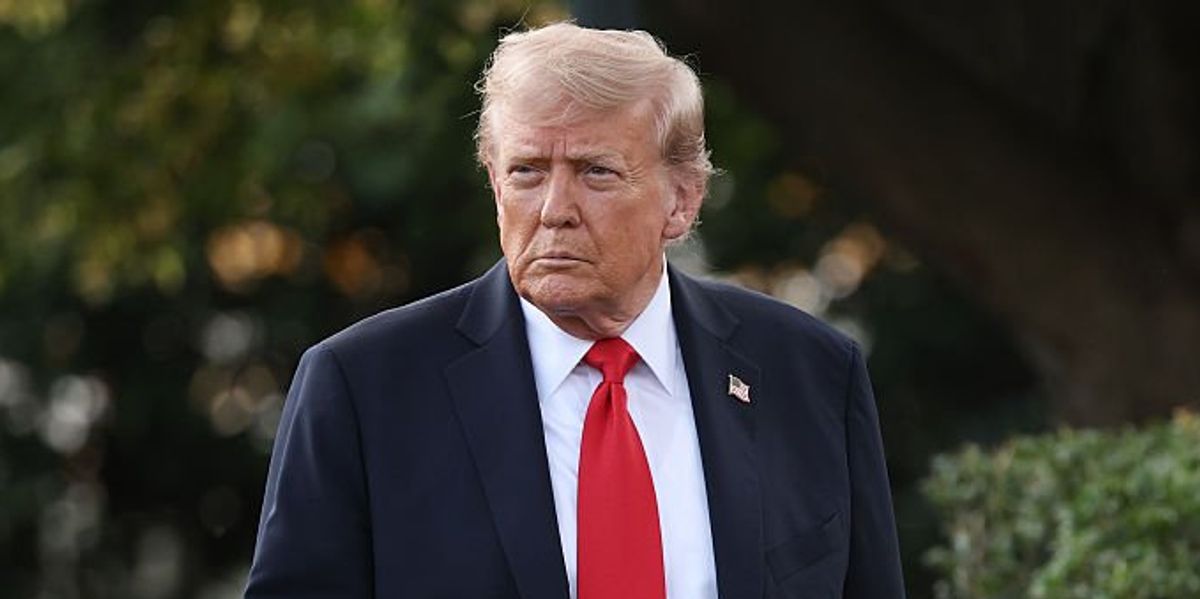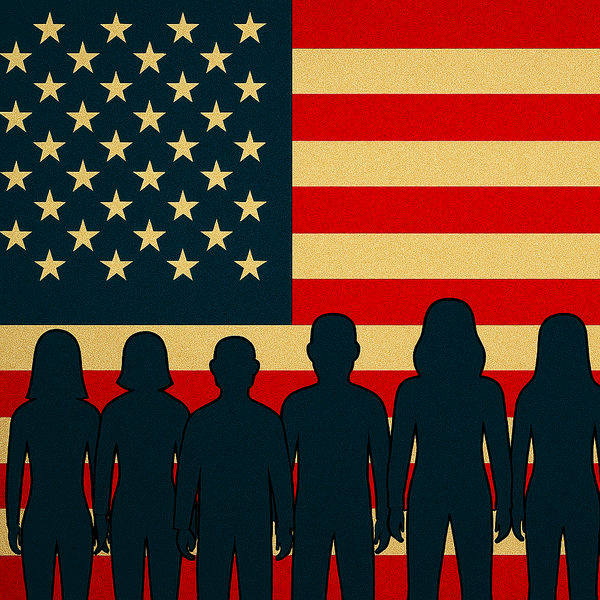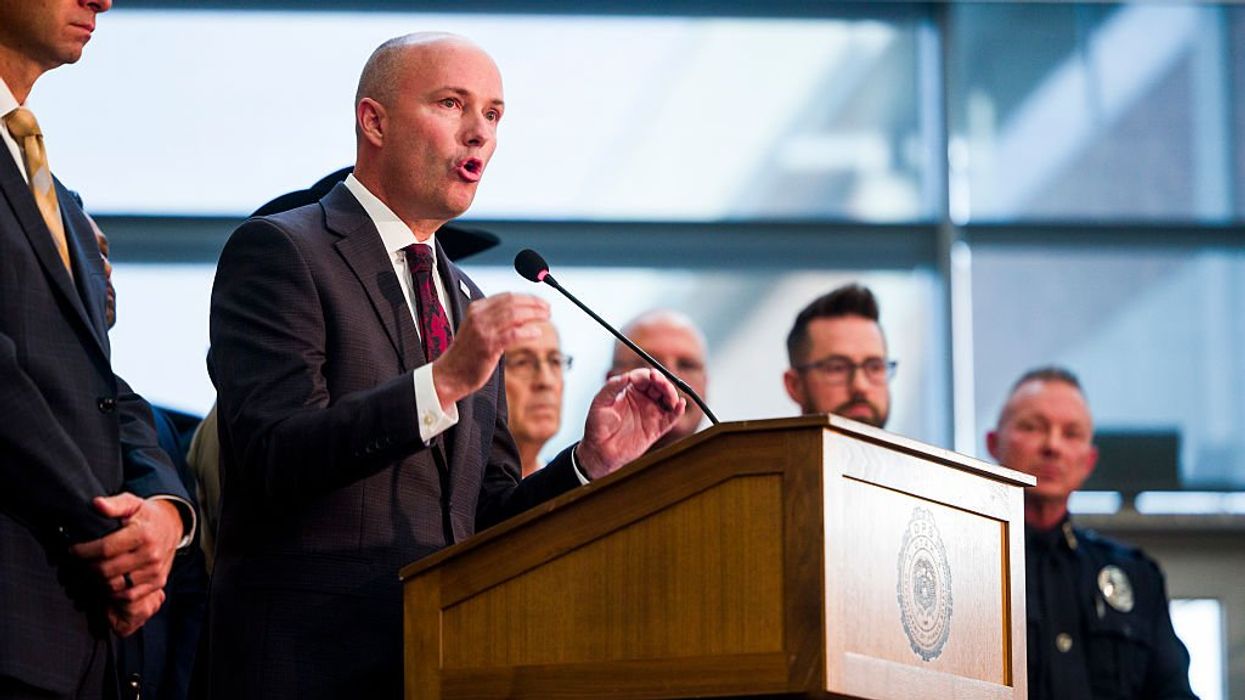In the hours following the shooting of conservative activist Charlie Kirk at Utah Valley University, Governor Spencer Cox stood before the press and offered a prayer. But it wasn’t for the victim’s family, or for a nation reeling from yet another act of political violence. It was a prayer that the perpetrator would be someone from “another state” or “another country.” In his own words: “For 33 hours, I was praying that if this had to happen here, that it wouldn't be one of us — that somebody drove from another state, somebody came from another country… Sadly, that prayer was not answered the way I hoped for.”
Governor Cox was hoping the killer would be an outsider. Preferably a foreigner. That’s not just a rhetorical misstep—it’s a dangerous invocation of the kind of scapegoating that has long fueled xenophobic policy and public distrust.
This kind of deflection is not new. It echoes the rhetoric of President Donald Trump, who just last year claimed Vice President Kamala Harris had “imported an army of illegal alien gang members and migrant criminals from the dungeons of the third world … from prisons and jails and insane asylums and mental institutions.” These words weren’t just inflammatory—they were designed to shift blame away from domestic failures and toward imagined foreign threats.
Donald Trump and the Rise of Political Violence
 U.S. President Donald walks toward reporters while departing the White House on September 11, 2025 in Washington, DC. (Photo by Win McNamee/Getty Images)
U.S. President Donald walks toward reporters while departing the White House on September 11, 2025 in Washington, DC. (Photo by Win McNamee/Getty Images)
Governor Cox’s remarks, whether intentional or not, reinforce a narrative that violence is imported, not homegrown. That’s a lie. And it’s a lie that has consequences.
The suspect, Tyler Robinson, is a resident of Utah. His arrest should have prompted a sober reflection on the conditions that allow radicalization to flourish within our own communities. Instead, Cox’s remarks implied that violence is somehow more palatable—less shameful—if committed by someone who doesn’t “belong.”
This framing is not only morally hollow, it’s statistically baseless. Immigrants, both documented and undocumented, commit crimes at significantly lower rates than native-born citizens. A 2024 study from the National Institute of Justice found that undocumented immigrants in Texas were arrested at less than half the rate of U.S.-born citizens for violent and drug crimes, and at a quarter the rate for property crimes. The Migration Policy Institute reports that immigrants are 60% less likely to be incarcerated than native-born Americans. The facts are not ambiguous: immigrants are not the threat.
What is a threat, however, is the persistent political impulse to deflect blame outward—to cast suspicion on the “other” rather than confront the rot within.
Pulitzer Prize-winning historian Jon Meacham framed the moment with chilling clarity: "Political violence erupts in America when there is an existential question—who is an American? Who deserves to be included in ‘We the people,’ or ‘All men being created equal’?” he said. “When that is in tension, when we don’t have common agreement about that, then, if you look at it historically, violence erupts." These are not rhetorical flourishes. They are the fault lines of a democracy under siege.
Political violence in America is not a foreign contagion. It is domestic, it is rising, and it is often fueled by rhetoric that dehumanizes, divides, and deflects. The bullets that killed Charlie Kirk were fired by someone born and raised in Utah. That fact should not be a source of shame—it should be a call to accountability.
Governor Cox later said, “We can return violence with fire and violence. We can return hate with hate… but at some point we have to find an off-ramp.” He’s right. But that off-ramp begins with truth. And the truth is: it was one of us. It often is.
Until our leaders stop praying for convenient villains and start confronting uncomfortable realities, the road ahead will only grow darker.
Meacham: Political Violence in America Linked to Deep Questions of Identity and Inclusion
 "Who is an American? Who deserves to be included in ‘We the people" - Jon Meacham AI generated illustration
"Who is an American? Who deserves to be included in ‘We the people" - Jon Meacham AI generated illustration
Hugo Balta is the executive editor of the Fulcrum and the publisher of the Latino News Network. Balta is the only person to serve twice as president of the National Association of Hispanic Journalists (NAHJ).




















Trump & Hegseth gave Mark Kelly a huge 2028 gift